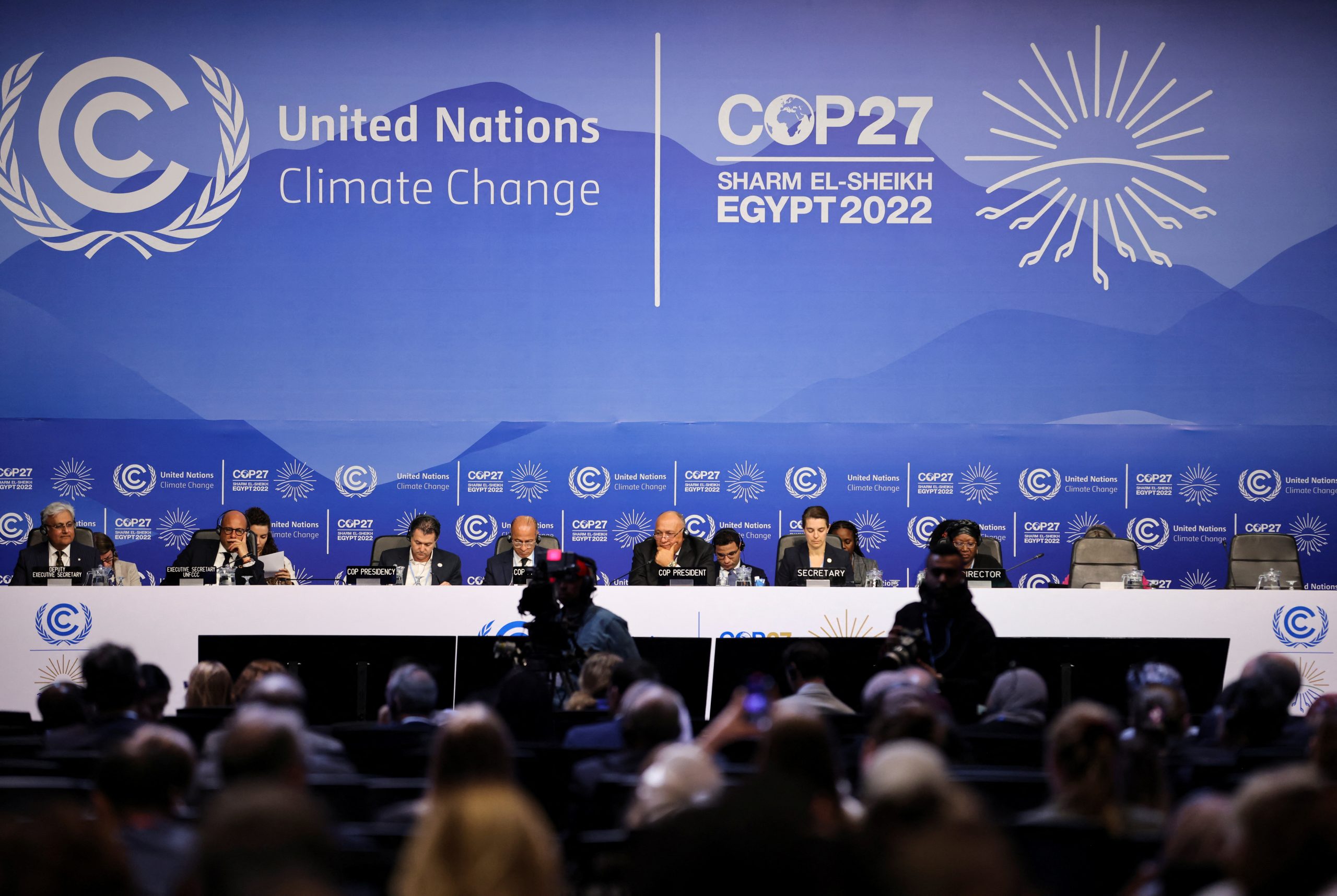Hundreds of fossil fuel lobbyists have flooded the UN climate change summits in the past few years. They have become a constant feature of the so-called COPs, while consistent plans for getting to carbon neutrality risk being derailed or spun. Open Source Investigations looks into the inner workings of COP27 from this perspective.
A 25% yoy increase in lobbyist attendance
The 2022 United Nations Climate Change Conference or Conference of the Parties of the UNFCCC (COP27) was held last November in Sharm El Sheikh, Egypt, and saw a 25% year-over-year increase in lobbyist attendance.
There were 636 lobbyists from the oil and gas industries registered to attend the Cop27, among the 30,000 delegates admitted to the talks, according to the study made by the Global Witness. The only country with a larger delegation was the United Arab Emirates, hosts of COP28 in 2023, with 1,070 registered delegates, up from 176 in 2021.
For a second year (after 2021), the fossil fuel tally was more significant than the collective delegates from Puerto Rico, Myanmar, Haiti, the Philippines, Mozambique, the Bahamas, Bangladesh, Pakistan, Thailand, and Nepal. These are the ten countries most impacted by climate change according to Germanwatch, a global climate risk index.
The Kick Big Polluters Out group said fossil fuel lobbyists' influence was greater than frontline countries and communities, as delegations from African countries and Indigenous communities were "dwarfed by representatives of corporate interests."
In a submission to the UNFCCC, a coalition of civil society groups said climate action would "continue to fail to meaningfully address the climate crisis as long as polluting interests are granted unmitigated access to policymaking processes and are allowed to unduly influence and weaken the critical work of the UNFCCC". In response, the United States Council for International Business pushed back against any suggestion that there should be limits on corporate interests at the climate talks, saying this would "damage and slow implementation [and] marginalize one of the most central constituencies in the UNFCCC process."
Twisted joke
According to the 2022 report by Global Witness, 29 countries brought a total of 200 fossil fuel lobbyists as part of their official delegations. The UAE had the most registered, with a total of 70, followed by Russia, with 33 registered. More than one in five in Russia's 150-strong delegation were from the fossil fuel industry.
A spokesperson for the group of organizations that published the report described the size of the fossil lobby as a "twisted joke." "Tobacco lobbyists wouldn't be welcome at health conferences, arms dealers can't promote their trade at peace conventions. Those perpetuating the world's fossil fuel addiction should not be allowed through the doors of a climate conference", they said.
The uphill battle the activist groups faced was even harder, as public demonstrations are effectively banned in Egypt, so only the conference's premises saw some small-scale protests.
The push against the fossil fuel lobby came as oil and gas companies rake in huge profits from soaring energy prices driven by supply disruptions due to the Russian invasion of Ukraine.










Trackbacks and Pingbacks